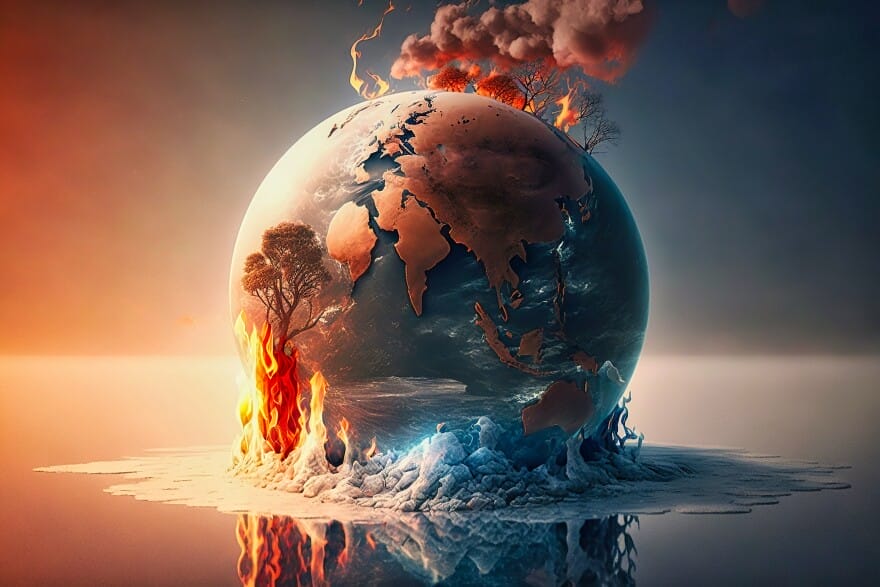The Unfolding Climate Crisis: Navigating Through a Warming World
April 2, 2024 2024-04-04 9:34
The Unfolding Climate Crisis: Navigating Through a Warming World
Unraveling the Causes
The root cause of climate change is greenhouse gas emissions, primarily carbon dioxide (CO2) and methane (CH4), which trap heat in the Earth’s atmosphere. Human activities, notably the burning of fossil fuels, deforestation, and industrial processes, have significantly increased the concentration of these gases, leading to a warming effect known as the greenhouse effect.
Witnessing the Impacts
The impacts of climate change are both vast and varied, affecting nearly every aspect of the natural world and human society:
- Rising Temperatures: Global temperatures have been steadily increasing, with the last decade being the warmest on record.
- Extreme Weather: Increased heat has fueled more frequent and severe weather events, including hurricanes, droughts, heatwaves, and wildfires.
- Melting Ice and Rising Sea Levels: The polar ice caps and glaciers are melting at unprecedented rates, contributing to rising sea levels and threatening coastal communities.
- Biodiversity Loss: Ecosystems are being disrupted, leading to the displacement and extinction of numerous species.
The Path to Mitigation
Addressing climate change requires a multifaceted approach, involving both mitigation strategies to reduce future greenhouse gas emissions and adaptation measures to cope with the changes already set in motion:
- Transitioning to Renewable Energy: Shifting from fossil fuels to renewable energy sources, such as solar, wind, and hydroelectric power, is crucial for reducing emissions.
- Enhancing Energy Efficiency: Improving the energy efficiency of buildings, vehicles, and appliances can significantly cut emissions.
- Reforestation and Land Management: Planting trees and adopting sustainable land management practices can absorb CO2 from the atmosphere.
- International Cooperation: Climate change is a global challenge that necessitates collaboration across countries to implement effective solutions.
The Role of Individual Action
While addressing climate change requires systemic change at the global level, individual actions also play a vital role. Simple lifestyle changes, such as reducing meat consumption, minimizing waste, using public transportation, and supporting sustainable products and policies, can collectively make a significant impact.
The Road Ahead
The fight against climate change is a race against time. The decisions made today will determine the planet’s future for generations to come. It is a challenge that demands immediate action, innovative solutions, and unwavering commitment from governments, businesses, communities, and individuals worldwide. As we stand at this critical juncture, the path forward is clear: we must unite in our efforts to combat climate change, embracing sustainable practices and fostering a culture of environmental stewardship. Only then can we hope to safeguard our planet and ensure a livable future for all its inhabitants.
Related Posts
The Unfolding Climate Crisis: Navigating Through a Warming World
April 2, 2024 2024-04-04 9:34Popular Tags






























